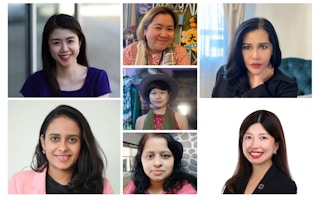The sustainability sector is not immune to gender inequality.
To continue reading, subscribe to Eco‑Business.
There's something for everyone. We offer a range of subscription plans.
- Access our stories and receive our Insights Weekly newsletter with the free EB Member plan.
- Unlock unlimited access to our content and archive with EB Circle.
- Publish your content with EB Premium.
Issues more commonly associated with more male-dominated industries like finance, engineering or construction, such as unequal pay, maternity discrimination, and sexual harassment, continue to exist, even in supposedly socially responsible, purpose-driven organisations.
“People naively think sustainability organisations are full of do-gooders, and there are no politics, egos, or power dynamics. But these organisations are full of human beings, which are just as susceptible to gender bias as any other type of organisation,” says Helen Duce, chief executive of Singapore-based lnclude Consulting.
Even in organisations run by women, as sustainability entities often are, the symptoms of inequality can persist. “Women can show gender bias too,” says Duce. For instance, women are four times more likely to be interrupted in meetings than men — but women are just as likely to interrupt other women as men are, she says.
Unconscious gender bias often comes in the form of what Duce calls “micro-aggressions” — everyday actions that can go unnoticed and are rarely called out. “When I travel for work, I am often asked: ‘who’s looking after your kids while you’re here?’ This is a question that my husband has never been asked. The implication is that I’m a bad mother,” says Duce.
“
Women are often expected to fit into a masculine work culture. In a sense, women are trained to be men, or we won’t be taken seriously.
Perpetua George, general manager, sustainability, Wilmar International
Other forms of gender bias, such as pay inequality, are starting to be addressed. Singapore Exchange and Hong Kong Stock Exchange recently proposed that listed companies maintain and monitor a board diversity policy. But there’s a long way to go. In the United States, just 5 per cent of firms report their gender pay gap. In Hong Kong it’s just 4 per cent and in Japan 2 per cent, according to the Morningstar gender diversity index.
In the sustainability sector, the gender pay gap appears to be less of an issue. In a LinkedIn survey conducted by Eco-Business on 4 March, 30 per cent of respondents said that the gender pay gap is a problem in their organisations with the majority reporting that it wasn’t an issue. Overall, 59 per cent said that the prevalence of gender equality is “moderate” in Asia’s sustainability sector; 29 per cent said the issue is absent, and 12 per cent said it is pervasive.
To mark International Women’s Day, Eco-Business spoke to women in India, Indonesia, Hong Kong, Singapore and Malaysia who shared their experiences of inequality in the sustainability sector.
Christina Lee
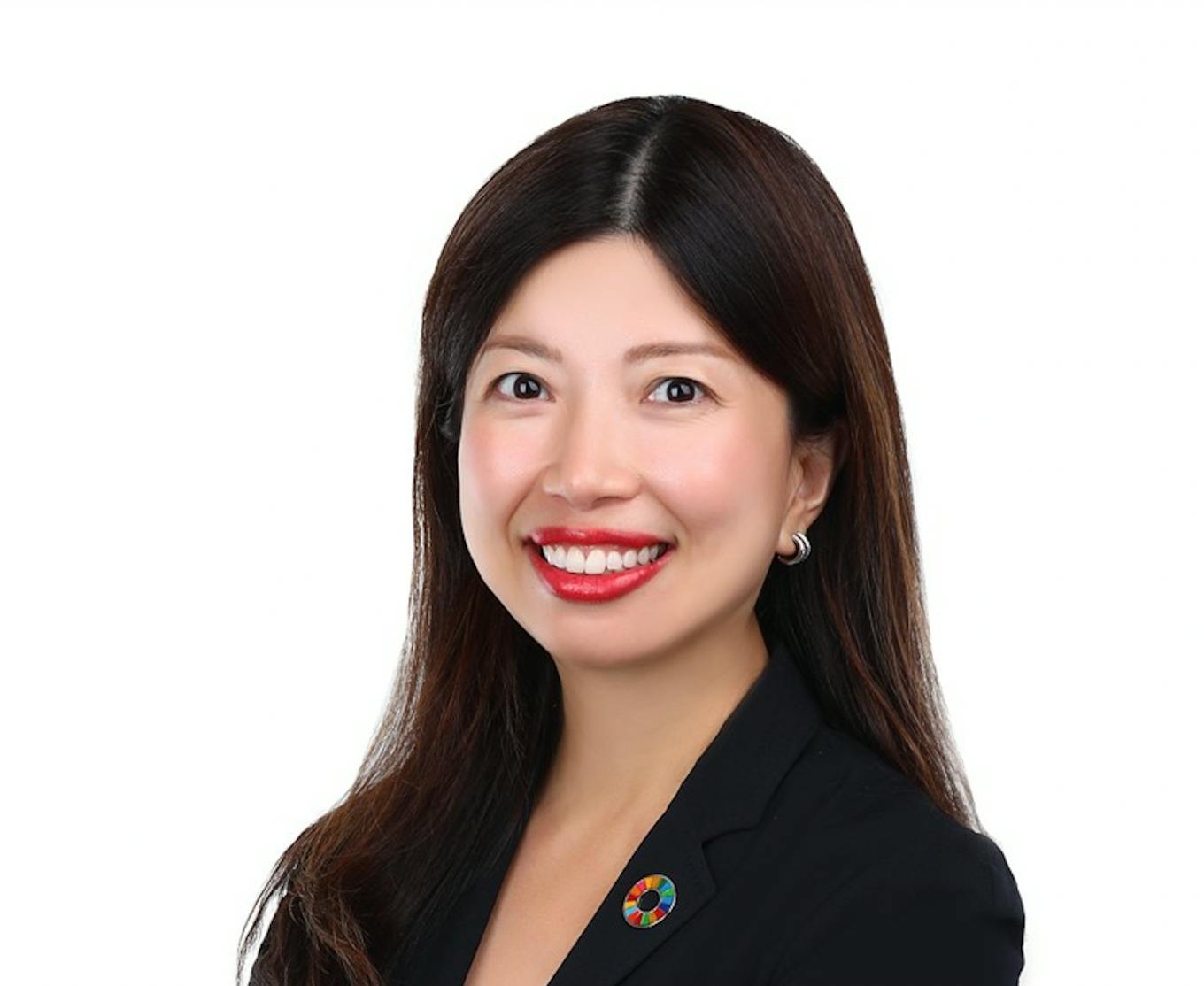
Christina Lee is the founder and chief executive of Singapore-based Global Green Connect, which provides consulting, market entry advice and sustainability business accelerator programnes in Asia. She previously worked for Bloomberg, Star TV and Yahoo! in Hong Kong. Image: Christina Lee/LinkedIn
I started my own business, Global Green Connect (GGC), to help startups enter the sustainability sector in 2012. In a sense I was eight years too early. It was difficult back then — and still is — for female entrepreneurs to raise the funds they need to start and run a business.
I think it is a lot easier for male entrepreneurs to attract investment and get the support they need. I think that is partly because the investment community is so male-dominated. Also, I think female sustainability entrepreneurs are very purpose-focused — so are less comfortable talking about money and the language of investors. I’ve seen a lot of women struggle in the sustainability space. They have had to persevere and find a way to make it work. It’s only recently that things have started to change, and sustainability has become a hot topic for investors and more money is entering the sector. Eighteen months ago no one wanted to know.
Another issue I’ve faced is pay inequality. Before I started my own business, I worked in the corporate world. I found out that I was getting paid 20 per cent less than an equivalent male in my position. He was a man in his fifties and I was in my thirties, but we were still at the same professional level. I feel that there’s still a pay gap in the corporate world, including in sustainability where there tend to be more women than men. It’s difficult to talk about salaries at work, but more transparency could bring about greater pay parity.
Aida Greenbury
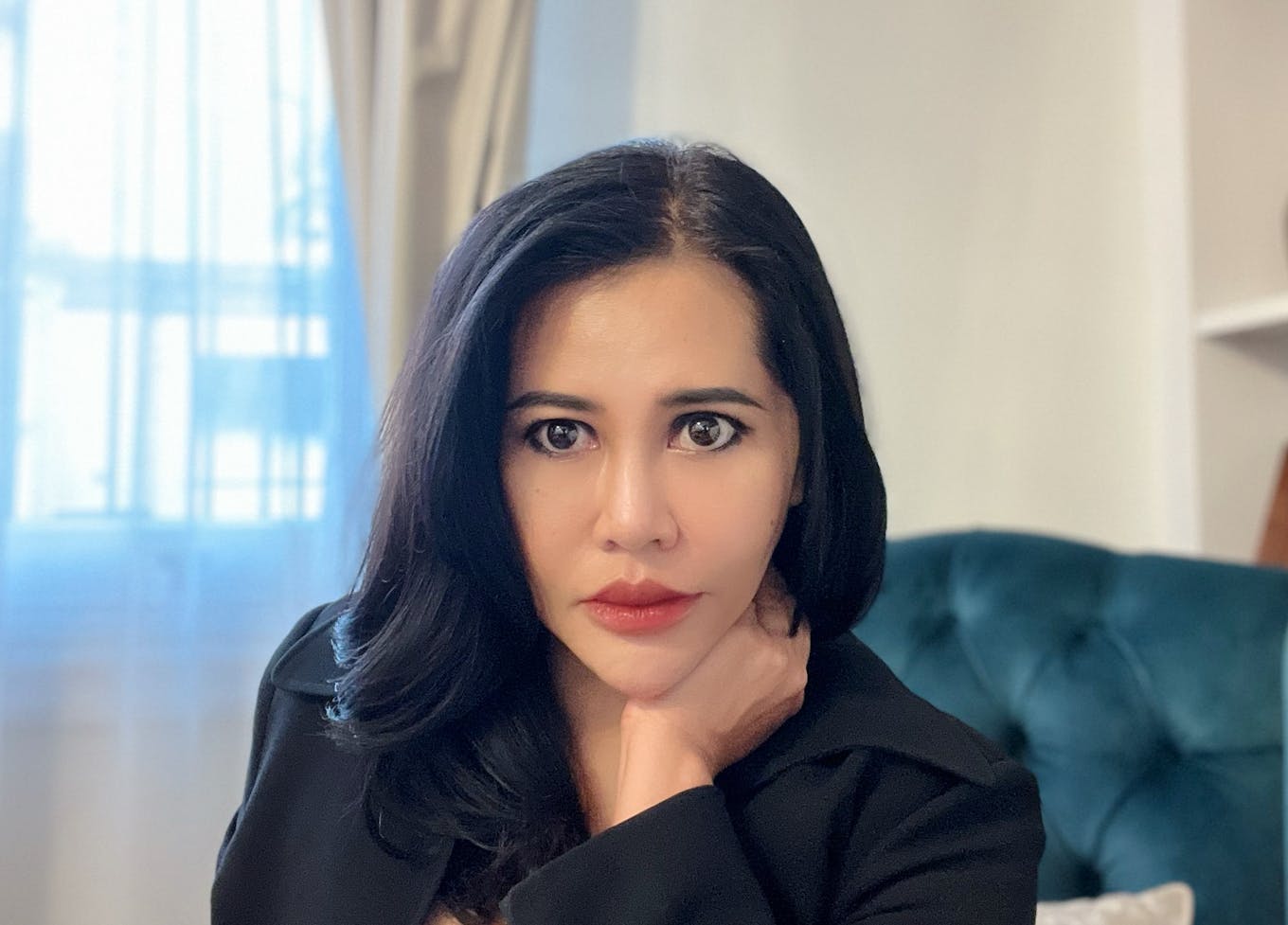
Aida Greenbury is the former chief sustainability officer of Asia Pulp and Paper (APP) who now works as a consultant for the forestry and sustainability sector. Image: Aida Greenbury
It’s hard for me to talk about discrimination and inequality, even though I tick all the boxes — I am a native woman of colour with a career in a male-dominated industry. I relate to this issue in two ways. First, in the workplace, I don’t think of myself as a woman. I see myself as a strong person, equal to anybody else, whether man, woman, rich or poor, from whatever racial background. The second factor is that I don’t put up with any discrimination, and I don’t let anyone who tries to be discriminatory to me impact my work or me personally.
That is not to say that people haven’t tried. There have been several incidences. The first happened in the early part of my career. I had to work with two senior male colleagues, an Australian and a Brit, who described me as a “Barbie with a brain”. It was my first job, and Tweedle-dee and Tweedledum really opened my eyes to the attitudes of some men at work and the pervasive nature of their prejudice.
Don’t be mistaken. Harassment is not limited to men. My former female chief finance officer called me in to see her one day just to tell me that my skirt was five centimetres too short. I responded by unhooking my skirt in front of her, pulling it down by exactly five centimetres, and saying: How is it now – happy?
The third time was when, during a meeting, a high-ranking Chinese Singaporean executive refused to listen to me or even look at me. He was only willing to listen to my male Chinese Indonesian boss who was sitting next to me, and deferred to him. But my boss realised what was happening and asked me to speak instead.
Last but not least, an American executive undermined my opinion during an important business meeting together with my superiors. I responded by telling him: “let’s go outside and settle this, man-to-man.”
I see myself as a smart, articulate, strong person — and I don’t take shit from anyone. When you work smart and hard, and with principles, people will recognise and respect you for it. Stand up for yourself and don’t let negative actions influence you. If your colleagues or boss can’t see your value, find people who do.
Perpetua George
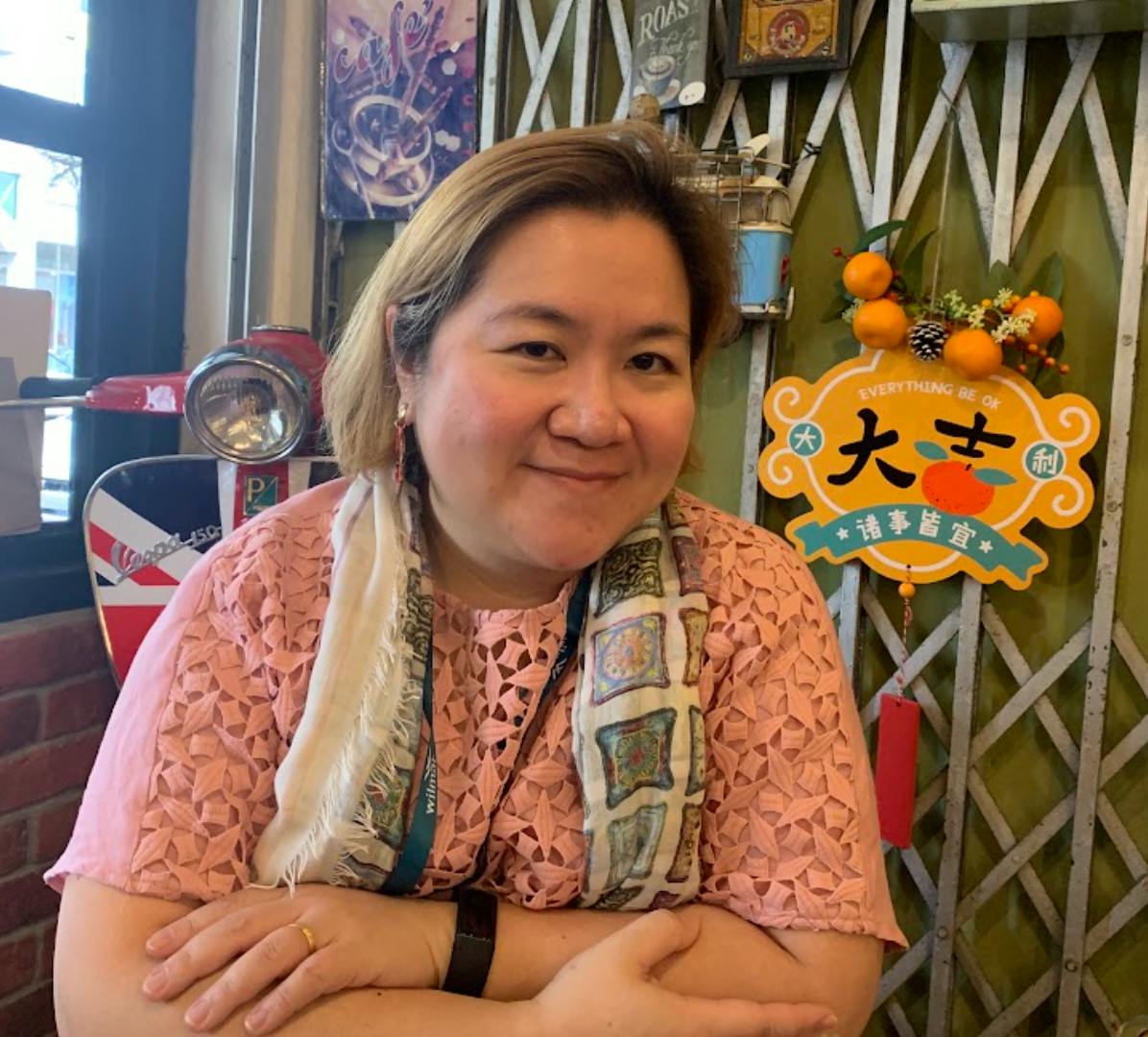
Perpetua George is general manager of group sustainability at palm oil company Wilmar International, based in Kuala Lumpur, Malaysia. She previously worked for Unilever in sustainable sourcing, Proforest and conservation group World Wide Fund for Nature (WWF). Image: Robin Hicks/eco-Business
Women are often expected to fit into a masculine work culture. In a sense, women are trained to be men, or we won’t be taken seriously. We are told we need a harder edge, not to wear pink, or talk about subjects considered feminine. This is even true in the NGO world, a sector that is presumed to be more feminine — but actually isn’t. At an NGO where I used to work, female colleagues with PHDs weren’t given the same respect as male, white colleagues.
I experienced inequality when speaking at a sustainable finance event last year. I was cropped out of a photo in the story covering our panel, along with another woman who was speaking on the panel remotely. Two women talking remotely are at a disadvantage on a panel with men who are there physically. We were also excluded from the coverage of the session, which centred on provocative comments made by one of the male speakers. I wondered if it would be as acceptable for a woman to be so provocative.
Another issue is motherhood. I had a baby soon after joining Wilmar in 2015. But as I was already of a certain age and it was my second child I wasn’t self-conscious about being a mother. I pumped breast milk at work. If it had been my first baby, it may have been more of an issue. Nobody really tells you what to do, and companies are rarely set up to care for new mothers.
I’ve been lucky to have supportive line managers, like Ruth Nussbaum, co-founder of non-profit Proforest. When I joined in 2005, she had two young daughters, but she was really ‘on’ at work. She was driven and strategic as well as nurturing and nourishing for her team. You could have honest conversations with her about work-life balance and going home early if you needed to. I’ve tried to instill those principles at Wilmar, and pushed for the Women’s Charter, which gives protection for women working on the company’s palm oil estates against discrimination and sexual harassment.
Huiying Ng
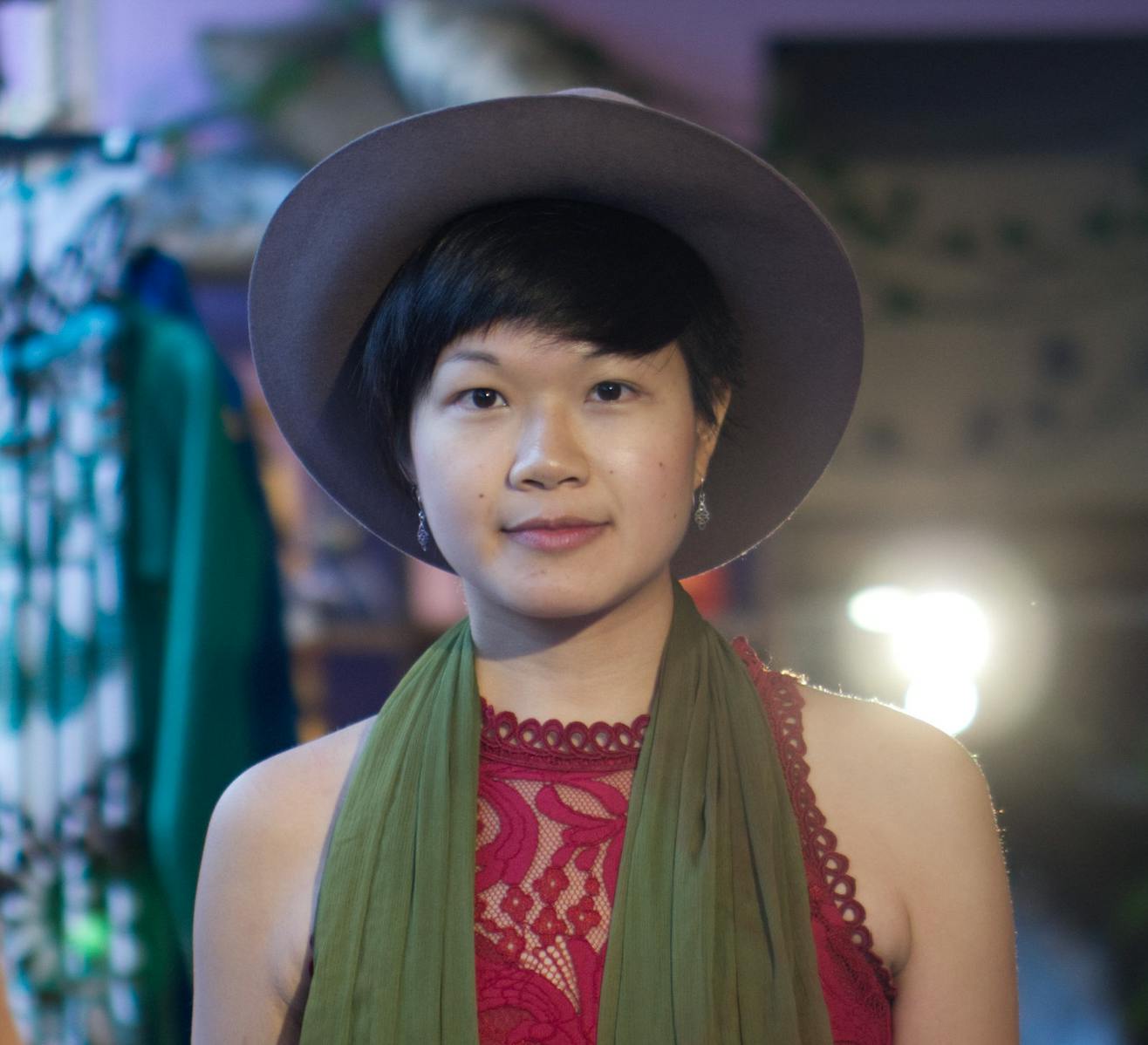
Huiying Ng (she/they) is a doctoral researcher in agroecology at the Rachel Carson Center in Thailand. She is co-founder of Foodscape Collective, a Singapore-based non-profit that advocates for a more sustainable food system, and partnerships and research lead for Soil Regeneration Project, which promotes sustainable agriculture in cities. Image: Jacqui Hocking
Gender inequality is not only about women. It concerns issues considered feminine, like care work — including soil care. I grew up with the idea that girls and boys are equal when I was in school in Singapore. But my viewpoint changed as I began talking about serious issues like growing our own food and food security. These are popular topics now, but 10 years ago it was hard to be taken seriously as a woman talking about topics considered fringe.
I am fortunate now to work in a specific niche, surrounded by mostly women, men, and queer folk who are sensitive to gender issues and how patriarchy manifests. But when I reach beyond these circles for funding or partnerships, the same dynamic emerges — a young woman raising questions about a radical issue does not get heard.
I’ve encountered many situations where people, especially those in positions of power, prioritise rationalistic mindsets of calculation. Care is not something you can easily measure - and care is often feminised. In 2019, after a well-received panel discussion organised by myself and others for the Soil Regeneration Project, I sat down with a co-organiser to talk to a policy consultant. He commended us for holding the panel, but in a heartbeat recommended that we not to waste our time on soil regeneration. It was a demoralising thing to hear, particularly in front of my fellow organisers. Did I waste their time?
Raising hard issues about what sustainability actually means is still difficult. Young women risk being caught in a media culture that spotlights women without necessarily supporting the feminist ethics of collaboration and mutual support, which push against the isolating qualities of patriarchal systems. I still see the “bro game” play out in entrepreneurship circles, and I still see women who succeed in these circles (known as “queen bees”) deny others opportunity, while gaming the circle with masculine, competitive, ego-based behaviour. My advice to young women is: refuse to let existing paradigms restrict what you dream of. Other worlds are possible.
Amishi Parasrampuria
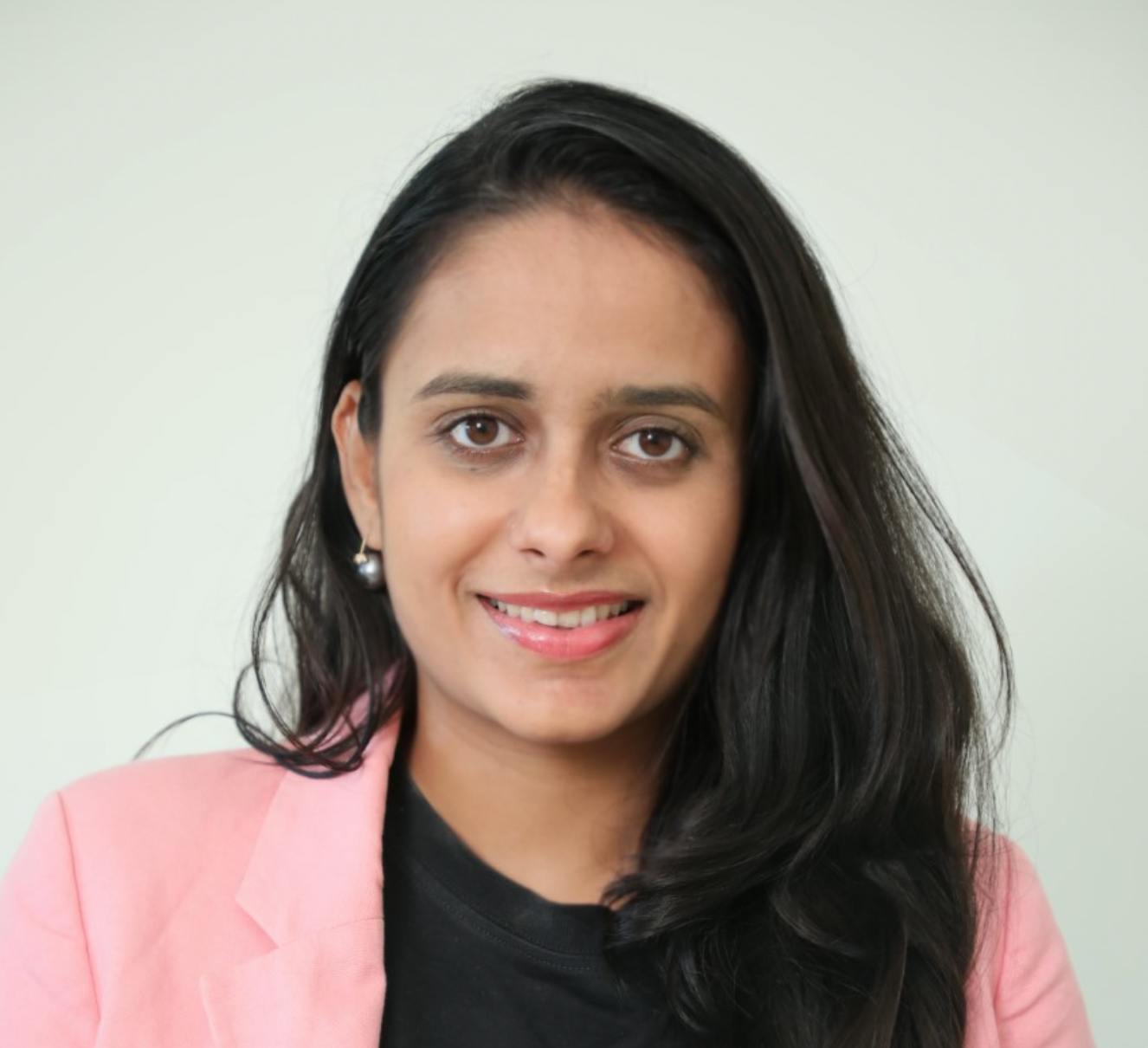
Amishi Parasrampuria is founder of Upcycler’s Lab, a social enterprise that creates play-based products for children, based in India. She previously worked in the finance industry. Image: Amishi Parasrampuria
Discrimination is not industry specific. Across the board women face discrimination. I personally have had instances where vendors that we work with, don’t take me seriously. They have asked me: “Is this something you’re doing to pass your time?” Or some would say: “It’s because your husband is a businessman that you’re able to do this.” A man is not seen or questioned in the same way.
There was one instance where a manufacturer I was dealing with would not look at me while talking, he would only look at my male co-founder, even when I was the one asking the question. The co-founder would tell him: “She’s responsible for this, you need to reach out to her.” But it was as though he just could not fathom that I was the one he needed to be talking to. Sometimes, to make it easier to deal with vendors or manufacturers, my co-founder manages them. People sometimes don’t know how to manage situations when a woman is in charge.
Luckily, so far on the international sales side, being a woman has worked in my favour. There are a lot of people now who do want to support women entrepreneurs. I think the sustainability industry, more than any other industry, needs feminine perspectives and feminine energy. Sustainability shouldn’t be all hard science and economics. We need to remember what the sector was established for, and what so many people have worked towards.
Maggie Lee
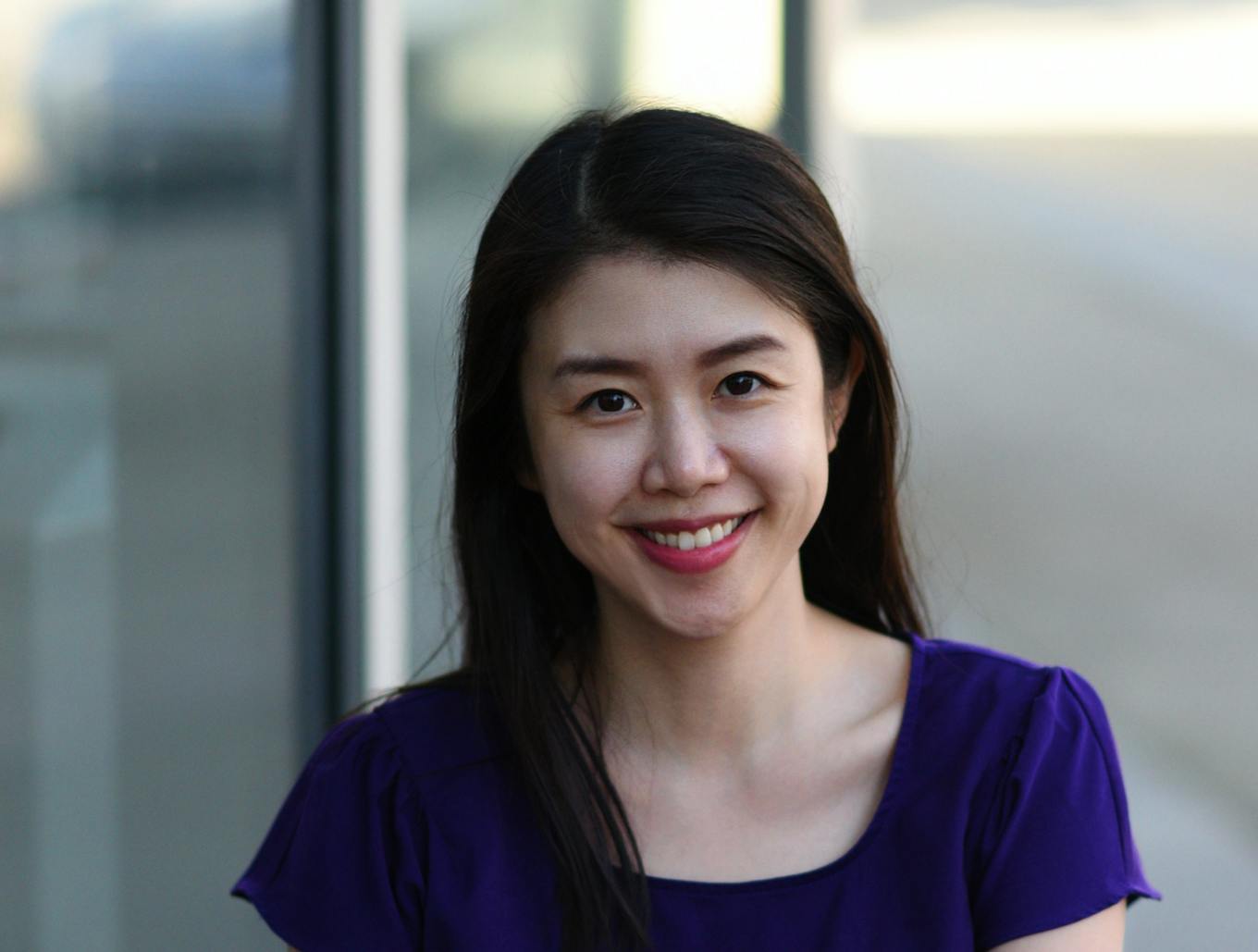
Maggie Lee, formerly with United Nations Environment Programme and Procter & Gamble’s sustainability team, is now in World Wide Fund for Nature’s (WWF) global seafood traceability team. Image: Maggie Lee
My experience with inequality is that I have been repeatedly told that I look younger than my age — including by those who know how old I am. It is a stereotype for Asian women to appear younger than their age to non-Asians. But even Asians can’t even tell how old I really am (I am 39).
In hierarchical and patriarchal Asian societies, looking young has been to my disadvantage. On my first day at the United Nations Environment Programme, a director-level person met me at an event and exclaimed aloud, in front of many internal and external stakeholders: “Wow, are you supposed to be the new coordinator for this initiative? You look so young!” Needless to say, that comment did not sit well with some of the consultants who were reporting to me. They were several years older than I was, but the public exclamation of how youthful — and by implication, inexperienced — I seemed aggravated this “setback”.
I wonder if I was a white male who looks my age, would I get more respect from, say, the Asian government officials whom I deal with? For this reason, I prefer not to be on calls with the camera on. That way, I sound half North American, and with my deeper voice at least I don’t have to be wary of the visual “setback”. Looking youthful may sound like a non-problem, but it isn’t. When it comes to creating environmental or social impact, we need to see beyond our appearance, race, gender, and age.
Tejashree Joshi
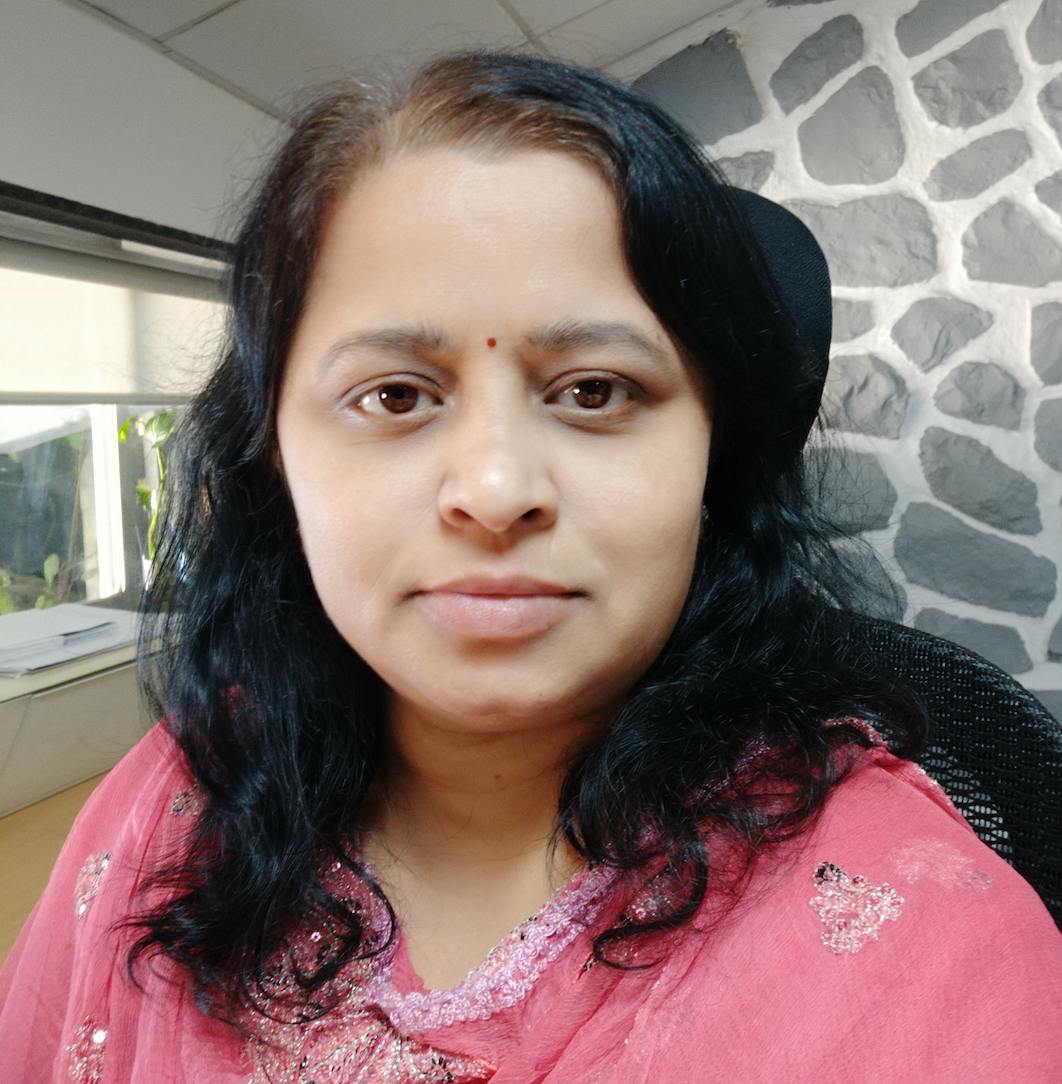
Tejashree Joshi is head of sustainability at Godrej & Boyce, the flagship company of the Godrej Group and one of India’s leading engineering conglomerates. She has been with the manufacturing firm for 20 years. Image: Tejashree Joshi
A woman working as an engineer is often met with hesitation in India. But I have seen that change over time. The response is now usually one of curiosity. When you demonstrate your technical expertise, and you are sure about what you’re saying, people respect you.
In environmental engineering, discrimination tends to emerge when jobs are assigned to women, because of the physical demands it has, and also because it may involve dealing with (male) contractors or labour work force. There is hesitancy from a safety point of view. While large corporates in India have made some progress on this front, change needs to percolate down to small businesses, suppliers and vendors.
Sometimes there is pay discrimination because of the nature of jobs that are allocated to women in engineering — these are desk-oriented jobs that do not involve the physical side of work that is required on some projects. These are barriers that need to be overcome from both sides — from men who doubt whether a woman can do a certain task, and from women who question whether they can do it or not. Believe me, we can.
My advice for younger women entering the field is to break the glass ceiling in your own mind and stop questioning whether you will be able to handle the challenges of the field. If you build a strong foundation of technical capabilities, and show confidence, you will get respect.
This story is part of our series on women to mark International Women’s Day 2022.

